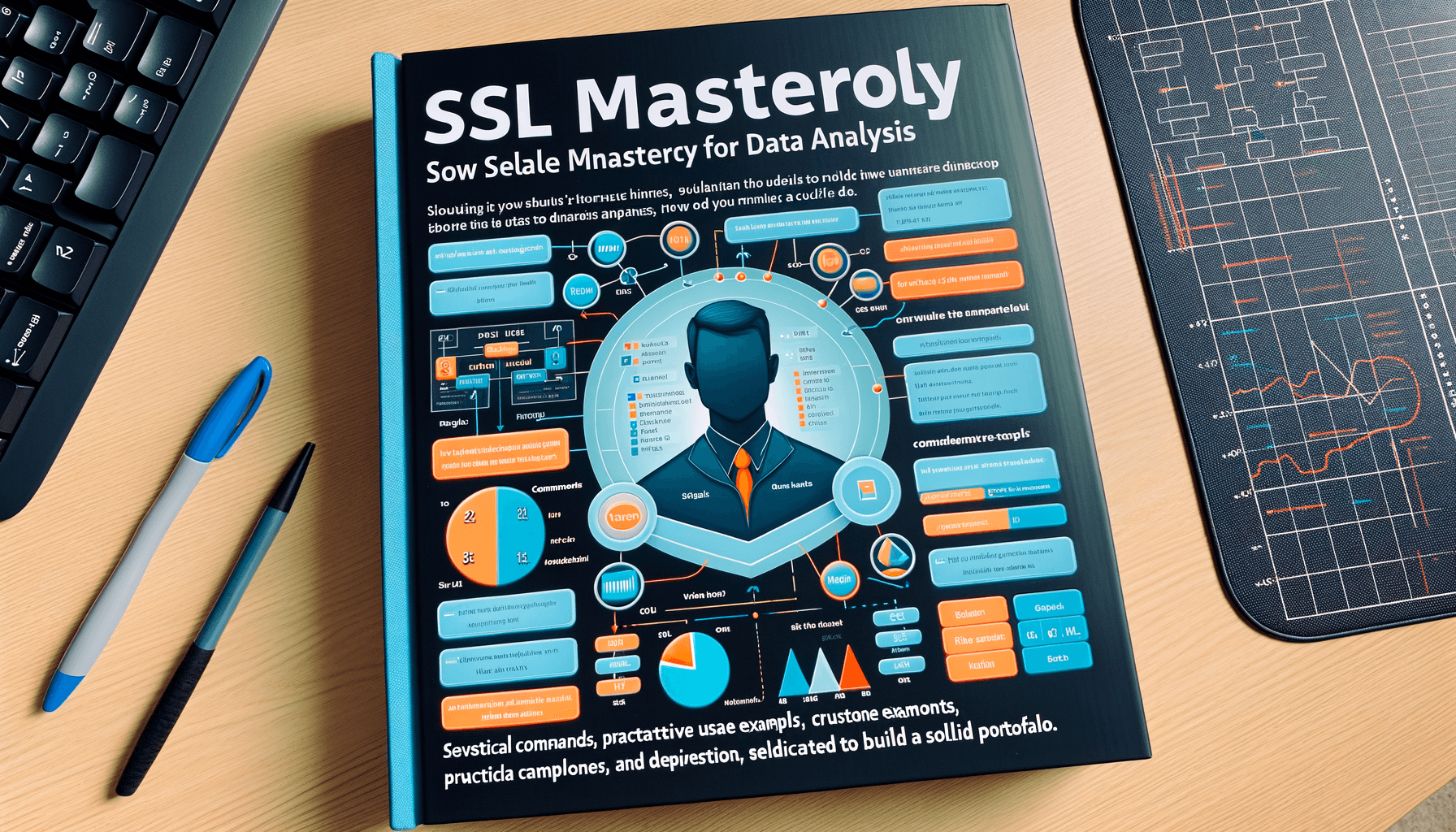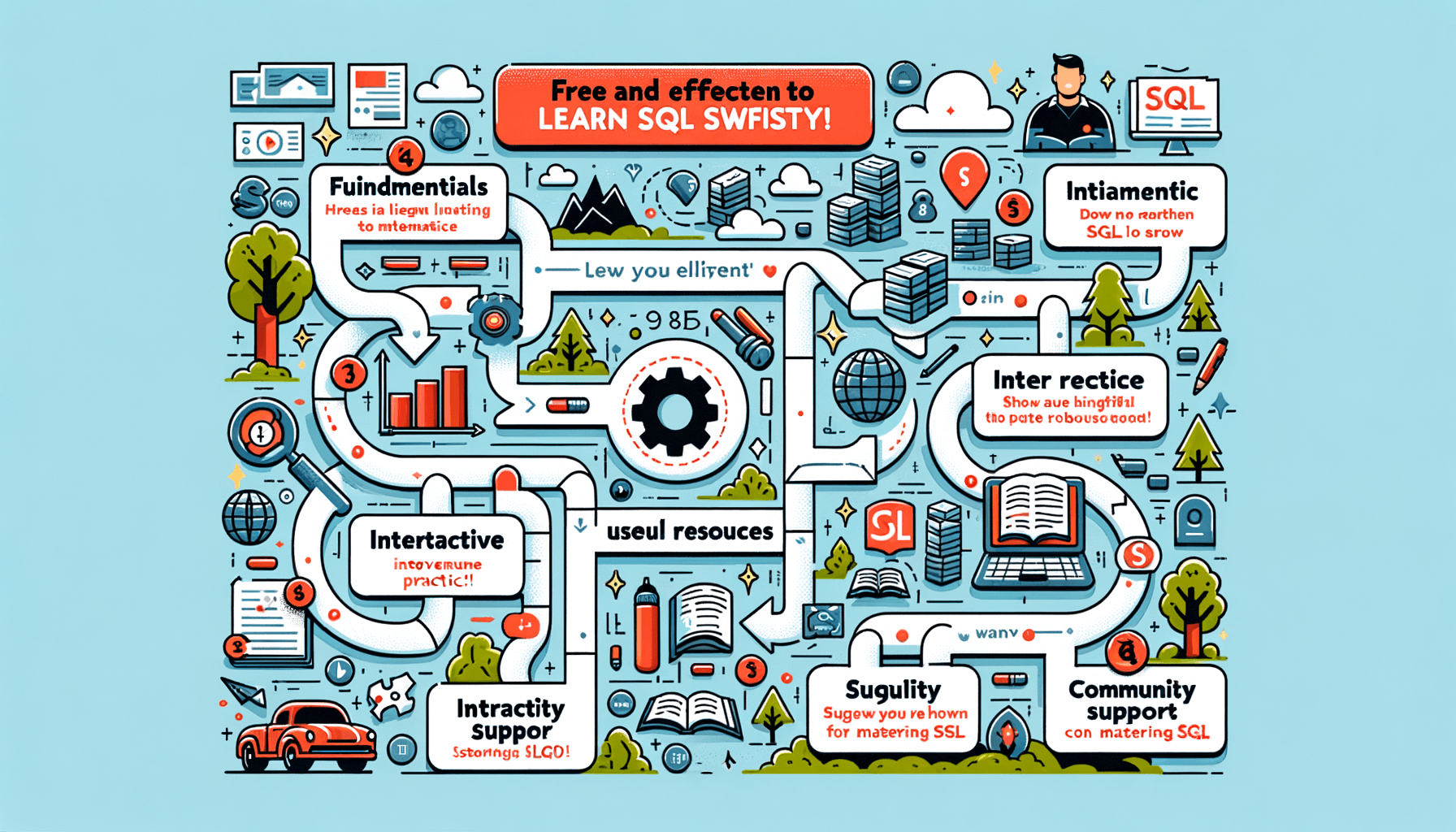A big variety of articles and resources

Enhance Your Database Skills: Learn SQL with Real-World Examples
 Sia Author and Instructor
Learn SQL
Sia Author and Instructor
Learn SQL
7 minute read
Getting Started with SQL
Installing MySQL and Setting Up a Sample Database
To begin your SQL journey, installing MySQL and setting up a sample database is a crucial first step. This process involves downloading the MySQL software and creating your first database to practice your queries. It's an ideal starting point for beginners and sets the foundation for more complex SQL tasks.
Understanding SQL Programming Basics
Understanding the basics of SQL programming is essential for anyone looking to manage data effectively. This section covers the fundamental concepts and syntax of SQL, providing a solid base for further exploration and learning.
Exploring Initial SQL Commands
Exploring initial SQL commands will equip you with the necessary tools to perform basic data retrieval and manipulation. This hands-on approach helps in grasping the practical applications of SQL in real-world scenarios, making it highly recommended for learners starting their SQL journey.
Building Your SQL Foundation
Mastering Key SQL Statements
To truly excel in SQL, mastering key SQL statements is crucial. This involves understanding and applying the core commands that manipulate and retrieve data from databases. Grasp SQL programming essentials to command these statements with ease, setting a strong foundation for more complex operations.
Grasping SQL Programming Essentials
SQL programming essentials form the backbone of effective database management. Learning these fundamentals is the first step towards becoming proficient in SQL. It's important to focus on syntax, logic, and the structure of SQL commands to manage data more efficiently.
Managing Simple Databases
Once you have a solid understanding of SQL basics, managing simple databases becomes the next logical step. This involves creating, modifying, and querying databases. Here, practical skills are developed through hands-on projects, which are ideal for demonstrating your capabilities to future employers.
Practical SQL Applications
Real-World SQL Projects for Beginners
Starting with SQL projects can be daunting, but real-world applications provide the perfect platform to apply your skills. These projects often involve tasks like setting up databases, querying data, and generating reports, which are essential for any budding SQL programmer. Ideal projects for beginners might include creating a customer database or analyzing sales data to provide actionable insights.
Using SQL in Everyday Data Management
SQL is invaluable in managing day-to-day data for businesses and organizations. By learning to write effective queries, you can significantly enhance your data management skills. For instance, using GROUP BY and aggregate functions like SUM() and AVG() can help you extract meaningful information from large datasets, making SQL a critical tool in any data-driven environment.
SQL for Enhancing Business Operations
SQL can dramatically improve business operations by providing deeper insights into data. For example, analyzing customer behavior patterns or optimizing inventory levels based on sales trends are common uses of SQL in business. These insights can lead to better decision-making and increased operational efficiency, showcasing the practical impact of SQL skills in real-world scenarios.
Advanced SQL Techniques
Learning Complex SQL Queries
Mastering complex SQL queries is essential for handling intricate data analysis tasks. Learn to write subqueries, including correlated subqueries, and combine various SQL features to tackle challenging queries effectively.
Handling Advanced Data Manipulation
Advanced data manipulation involves more than just basic operations. Utilize partitioning, indexing, and query optimization to enhance the efficiency of your SQL queries. This skill is crucial for managing large datasets and ensuring high performance in data-intensive applications.
Exploring SQL for Financial Analysis
SQL is a powerful tool for financial analysis, allowing you to perform complex calculations and data aggregation. Use GROUP BY to group data and apply aggregate functions like COUNT(), AVG(), SUM(), MIN(), and MAX() to extract meaningful insights from financial data.
Hands-On Learning with SQL
Interactive Exercises and Real Databases
Engage in hands-on learning through 169 interactive exercises using a simple store database. This approach allows you to apply SQL queries to real-world scenarios like identifying top-selling products or evaluating employee performance. The immediate application of concepts through our online console helps reinforce theory with practical experience.
Skill Development Through Problem Solving
Develop your SQL skills by solving real problems. Practice retrieving data from tables, such as the customers table, and see the effects of your queries in real time. This method not only enhances your understanding but also prepares you for real job scenarios.
Career Advancement with SQL Proficiency
SQL proficiency is increasingly essential in many career paths, particularly in data management and analysis. Enhancing your SQL skills through interactive learning can significantly boost your career prospects. The Data Analyst - Introduction to SQL course offers beginner-friendly SQL skills that are directly applicable in professional settings.
Enhancing Your SQL Skills
Resources for Continuous Learning
To truly master SQL, continuous learning is essential. Our platform offers a variety of resources, including articles, guides, and tips that cater to all levels. These resources provide a deeper understanding of SQL in various real-world scenarios, making them ideal for both beginners and advanced users.
Advanced Courses and Certifications
Elevate your SQL skills by enrolling in advanced courses and obtaining certifications. These programs are designed to deepen your knowledge and enhance your problem-solving abilities in SQL, preparing you for more complex challenges and opportunities in data management.
Applying SQL Skills in Real-World Scenarios
Apply your SQL skills in real-world scenarios to see the true value of your learning. Whether it's managing databases more efficiently or enhancing business operations, the practical application of SQL can significantly boost your career and provide substantial value to your organization.
Conclusion
As we wrap up this guide on enhancing your database skills through SQL, remember that mastering SQL is not just about learning syntax but applying it to solve real-world problems. Whether you're a beginner or looking to polish advanced skills, the practical examples and projects discussed provide a solid foundation and a path for continuous improvement. Keep practicing, stay curious, and use the resources and tips shared to become proficient in SQL. Your journey to becoming a skilled database professional is well underway. Happy querying!
Frequently Asked Questions
What is SQL and why is it important?
SQL, or Structured Query Language, is a programming language designed for managing and manipulating relational databases. It is essential for data management and analysis, making it a crucial skill for roles in data-driven industries.
How can beginners start learning SQL?
Beginners can start learning SQL by installing a database management system like MySQL, setting up a sample database, and practicing basic SQL commands. Online tutorials, videos, and interactive courses are also great resources.
What are some practical applications of SQL?
SQL is used in various real-world applications such as data analysis, managing customer information, financial transactions, and much more. It helps businesses make informed decisions based on data insights.
Can learning SQL improve my career prospects?
Yes, SQL skills are highly sought after in many industries, particularly those that rely on data analysis. Proficiency in SQL can lead to career advancements in roles such as data analyst, database administrator, or data scientist.
What are some advanced SQL techniques?
Advanced SQL techniques include complex queries, data manipulation, and optimization for performance. Learning these techniques allows for handling larger databases and performing more sophisticated data analysis.
How can I practice SQL to gain proficiency?
Practicing SQL can be done through interactive exercises, real-world projects, and problem-solving challenges. Platforms that offer hands-on SQL courses and exercises allow learners to apply their skills in practical scenarios.
Related Articles

10 Effective Tips on How to Learn SQL Online
9 minute read

A Comprehensive Guide to Learn SQL for Analysts
8 minute read


